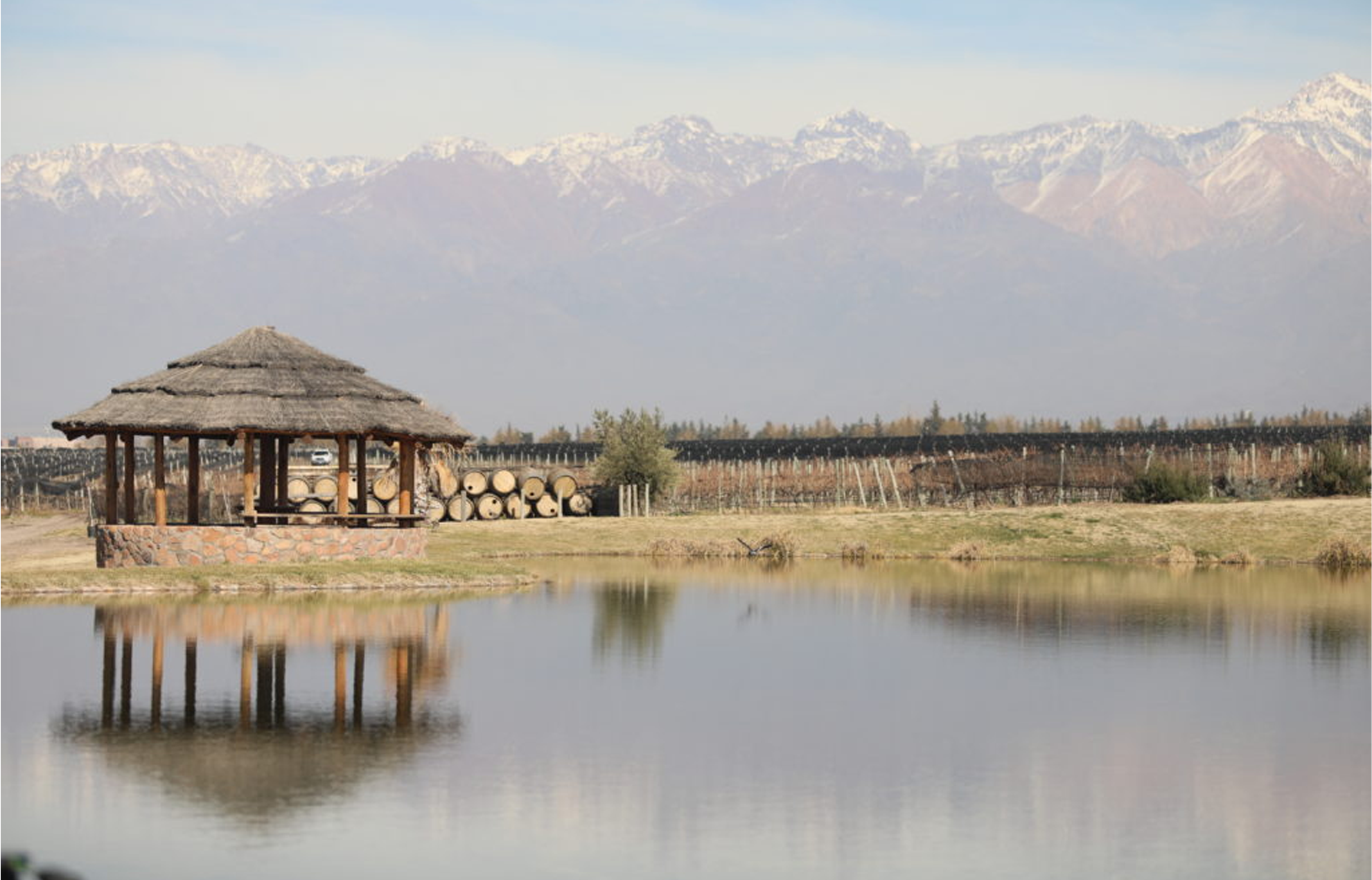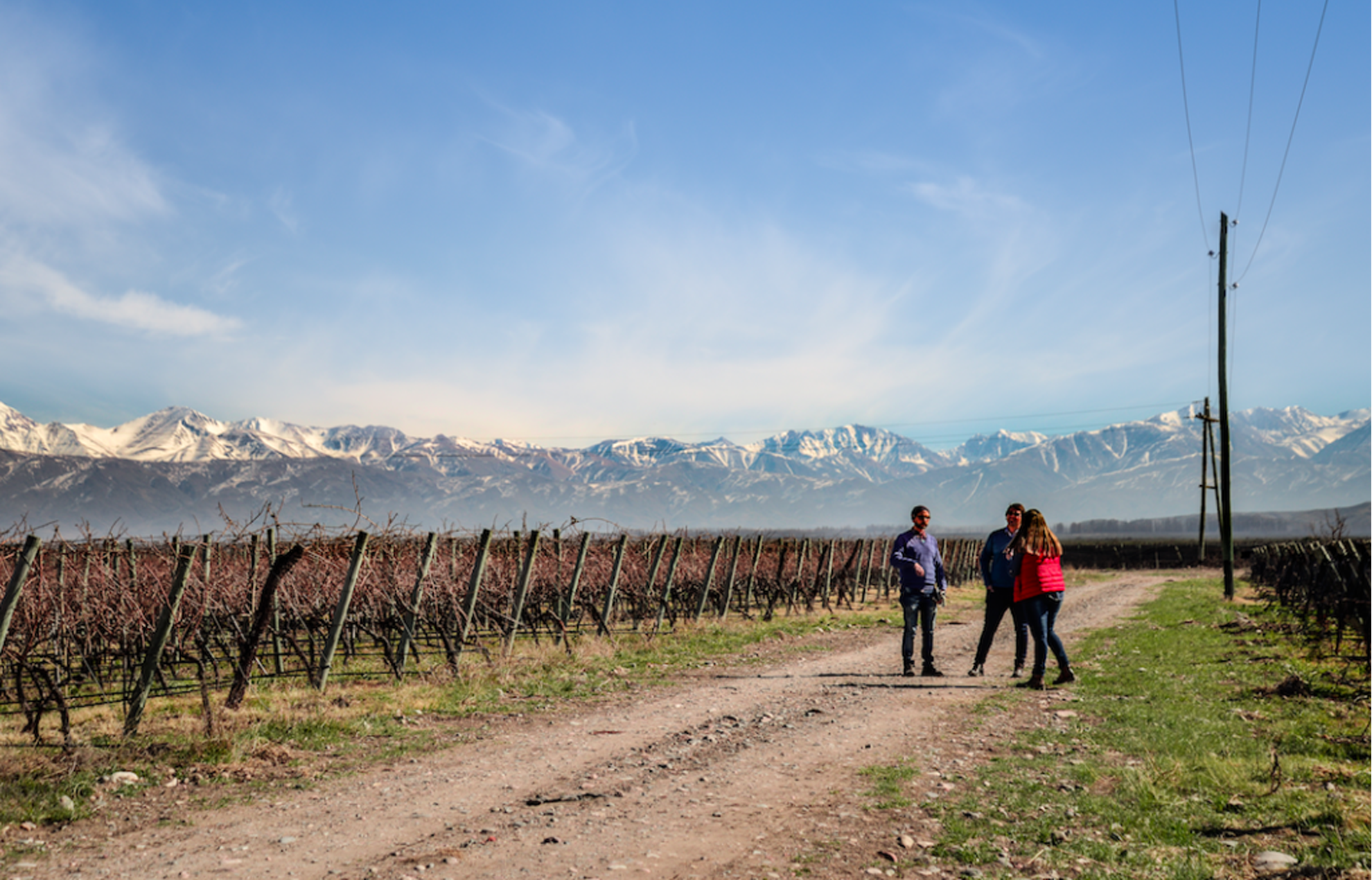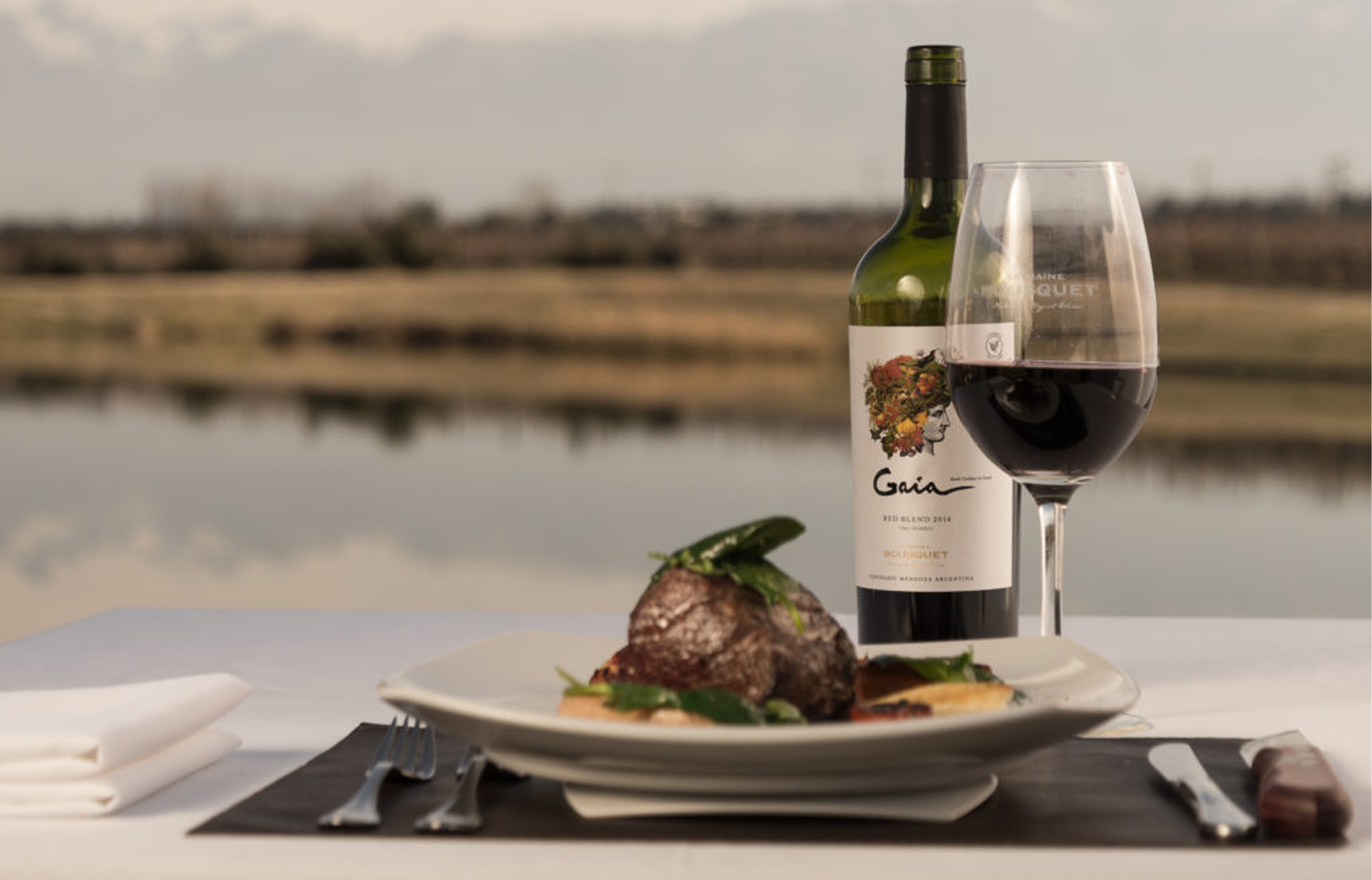High up in Mendoza’s Uco Valley sits Domaine Bousquet Winery, founded by French winemaker Jean Bousquet. First converted into a winery in the 1990s, many thought he was crazy for trying to convert desert land into a winery. But with a little ingenuity, a family-run operation, and a commitment to creating a sustainable, organic product–anything is possible. Our Coravin Correspondent Jacqueline Coleman of History and Wine profiles the winery’s rise from desert to flowing vineyard.
When Jean Bousquet visited the desolate, high-altitude Gualtallary area in the Tupungato region of Mendoza’s Uco Valley in 1990, he had a vision of creating something that had not existed there before. The land was dry, colder than other regions in Mendoza, and it was virgin territory when it came to any agricultural use. However, none of this deterred the third-generation winemaker from France who had grand plans to turn the barren desert land into a world-class winery that would one day become a pioneering force in the area.
At that time in the 90s, land prices were cheap in the undeveloped parts of Mendoza, so Bousquet decided to buy close to 1,000 acres to turn into a vineyard. No other winemakers had been successful in this area before due to the scarcity of one vital resource: water. The first task that Bousquet set out to complete was to make his land sustainable by digging a well down 495 feet to find a source of water. No simple task, but he was able to complete the well and finally plant vines on his land two years later.

Domaine Bousquet
Many of his friends and colleagues back in France thought he was crazy to buy desert land in an undeveloped part of Mendoza to start a winery where one had not existed before, but Bousquet persisted with a vision of making quality wine in Argentina. He believed that the location was a perfect spot to cultivate grapes that would be a balance between the fresh acidity of French style wine, which would be enriched by the cooler climate closer to the Andes Mountains, along with the ripe, juiciness of Argentine wines, enhanced by the altitude and exposure to sunlight. Gualtallary was exactly this mix, with altitudes of over five thousand feet, and cool winds from the Andes, along with sandy soils, and lots of sunshine. Bousquet had found his piece of wine-growing paradise.
A Generational Commitment to Sustainability
Domaine Bousquet, the winery founded by Bousquet on that barren land, released its first vintage in 2005. At that time, Jean Bousquet had sold off much of the original 988 acres he purchased to continue to fund his winery operations. In 2005, the winery was down to 173 acres, but bottle by bottle with a focus on sustainable practices at every level of the operation, Domaine Bousquet would grow to 667 acres under vine on the estate property and build a modern winery complete with hospitality center and restaurant in just a few years.

Domaine Bousquet
This transformation from desert vineyard to world-class destination didn’t happen overnight. When Bouquet’s economist daughter, Anne Bousquet, and her husband, Labid Al Ameri visited the winery during a trip to Argentina in 2002, they felt that they had seen something special and began to invest in the operation. Anne wanted the winery to function on firm principals of sustainability, not just in the grape growing, but in the way that the winery interacted with the community around it. She saw the opportunity for Domaine Bousquet to have a direct impact in creating opportunities for the people and infrastructure of Tupungato. Her dedication to creating a fully sustainable operation at Domaine Bousquet never wavered, and she and her husband moved full-time to Tupungato in 2009, taking full ownership of the winery in 2011.
Anne got down to business ensuring that Domaine Bousquet was producing not only organic fruit, but that the company was investing in the surrounding community and those who worked alongside them to produce quality wines at affordable prices. She joined an alliance of local wineries to build a new road into the area as a way to improve the transportation route of those who lived, worked in, and visited the growing wine region. Anne and Labid provided opportunities for growth within the company for those who were committed to their wines. Her practice of “360 Sustainability” allowed for one employee who started on the bottling line at 18 years old to later become the head of purchasing for the company, and Chef Adrian, who now runs their restaurant, was awarded a once-in-a-lifetime opportunity to study and intern in a kitchen in New York City before returning to manage the winery restaurant. The Bousquet way was sustainability all around from the very start.
Organic Grapes & Affordable Wines
“Being organic was never a sales gimmick. Stewardship of the land is a necessity: the land was unspoiled, and we weren’t about to spoil it!” -Anne Bousquet.
All wine made under the Domaine Bousquet label is made from 100% certified organic grapes. The winery is committed to not using pesticides, herbicides, or fertilizers, and consistent gentle handling of all the fruit. There is an organic garden on-site where much of the produce is used in the fresh meals prepared at the winery restaurant. From the very beginning, sustainable, organic practices were part of the plan for the pioneering winery, and now, Domaine Bousquet works with other wineries in the region to help them convert to organic practices as well.

Domaine Bousquet
What is most impressive is how the winery has taken the very best that the land gives and kept it natural, but also made it affordable for consumers to enjoy the wines. At around $13 a bottle in the U.S. market, wine lovers can enjoy quite a few of these fruit-forward wines made with a French sensibility. The wines at this price are completely unoaked, allowing the vibrant fruit to show clearly, just as the land created it. The winery also produces several premium lines that use low-yield fruit in smaller productions from only estate-grown grapes for extra elegant organic wines.
Over the course of 20 years, Domaine Bousquet has grown from barren desert land into an operation that oversees wines being sold in over 50 countries with 100 full-time employees. This mastery of success is no doubt due to the dedication and commitment that Jean, Anne, Labid, and the Bousquet leadership has to maintain a sustainable operation that respects the land and is good for the community, making Bousquet a true pioneering name in Argentine wine.
Do you have a favorite Domaine Bousquet wine? We want to know! Share with us on social by tagging @Coravin, @HistoryandWine, and @domainebousquet.

